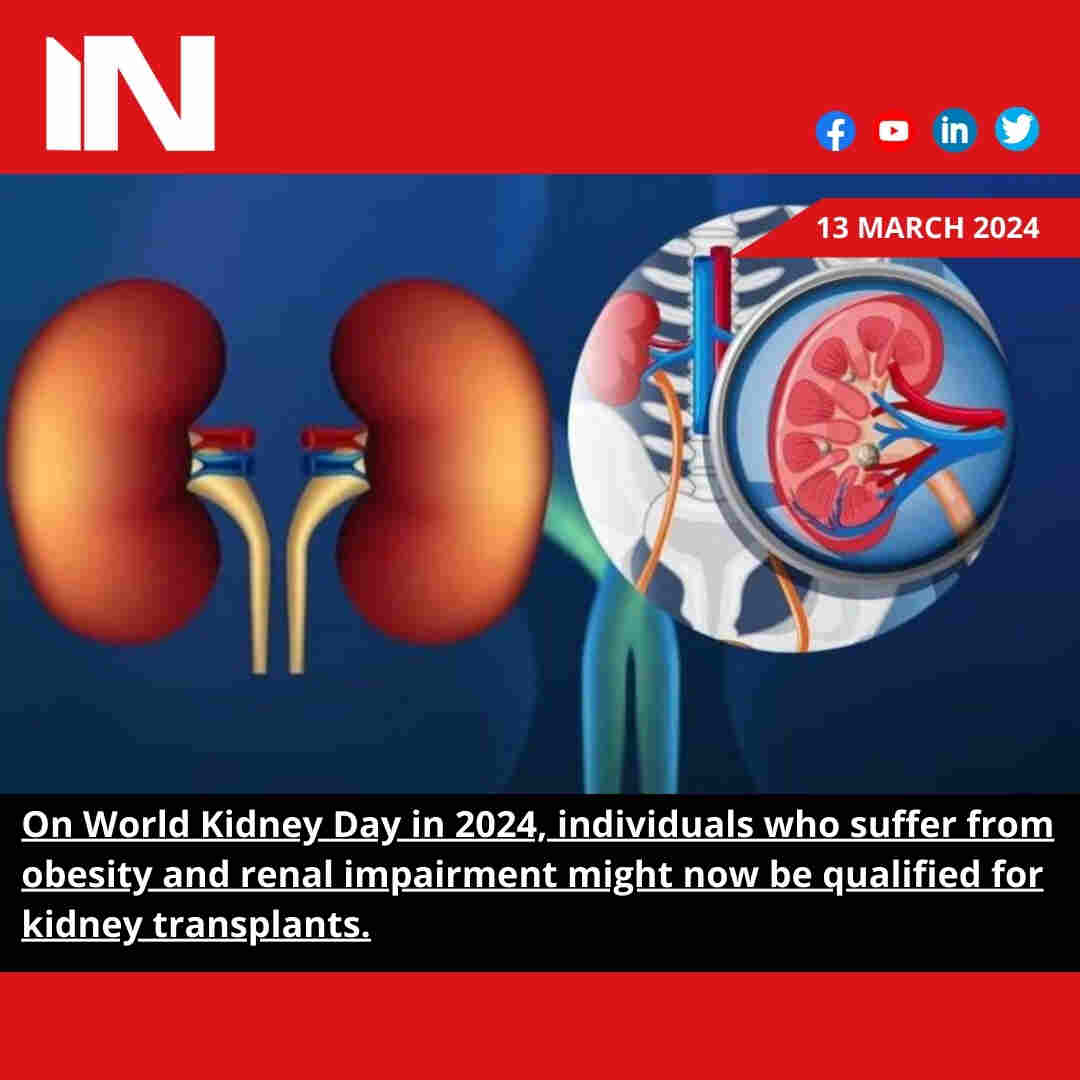People with obesity and end-stage renal disease (ESRD) now have new hope thanks to a combined study conducted by a bariatric and transplant surgery team. The authors of the study.
examined the effects of bariatric and metabolic surgery on patients with end-stage renal disease (ESRD) and whether such surgery could improve the patients’ eligibility for kidney donation. The American College of Surgeons Journal has published the findings.
“Obesity is a growing issue in the US and has a big influence on transplant eligibility. Recognizing the urgent need to address this issue, particularly in underserved populations who suffer the most from obesity-related diseases.
we established the CORT initiative, a collaborative for obesity research in transplantation,” according to corresponding study author Anil Paramesh, MD, MBA, FACS, professor of surgery, urology, and pediatrics at Tulane University School of Medicine.
The study demonstrates that recipients of kidney transplants may also be obese individuals with end-stage renal disease (ESRD).
Without a transplant, ESRD patients confront numerous challenges; their only option is to prolong life with dialysis, which is not only expensive and time-consuming but also drastically lowers quality of life, according to Dr. Paramesh.
The 183 ESRD patients who were referred for bariatric surgery were monitored from January 2019 to June 2023. Of them, 36 underwent weight loss surgery, and 10 later underwent kidney transplants. The average BMI was reduced by 27% at the time of transplant, according to the results, and hypertension and diabetes control were also improved. The general health and transplant viability of the patients were improved by this advancement in the management of comorbid diseases.
According to Dr. Paramesh, as obesity is a primary factor in transplant exclusion, this collaborative effort offers patients who would not have been eligible before a route forward and could open the door for more patient access and education.
It has been demonstrated that bariatric surgery considerably improves other critical illnesses like diabetes, high blood pressure, and sleep apnea, in addition to helping patients lose weight. This strategy tackles the larger problem of health care inequities, which primarily affect black and lower-class people, in addition to helping the patients lose weight to the point where they may safely undergo a transplant, according to Dr. Paramesh.
The study did, however, encounter several difficulties, such as a high patient drop-out rate due to medical issues that prevented or were unable to undertake surgery and unusual postoperative consequences like hypotension.
“Our findings indicate a pressing need to enhance patient education and support, making sure that potential candidates understand the benefits of weight loss surgery and its role in improving their eligibility for transplant,” stated Dr. Paramesh.
On World Kidney Day 2024, a groundbreaking development brings hope to individuals suffering from obesity and renal impairment. In a major policy shift, those battling both conditions may now be eligible for kidney transplants. This change in criteria comes as part of a wider effort to improve access to life-saving treatments for people facing complex health issues.
Historically, obesity has been a disqualifying factor for kidney transplants due to its impact on post-surgery recovery and the increased risk of complications. However, with advancements in medical science and a deeper understanding of the relationship between obesity, kidney function, and transplant outcomes, the decision has been made to reconsider these restrictions.
This new eligibility marks a significant step towards better healthcare inclusivity, ensuring that patients suffering medical intervention they need. It highlights the important work.
#WorldKidneyDay #KidneyTransplant #ObesityAndKidneys #RenalImpairment #MedicalAdvancements #KidneyHealth #HealthcareInclusion #ObesityAwareness #KidneyCare
Group Media Publications
Entertainment News Platforms – anyflix.in
Construction Infrastructure and Mining News Platform – https://cimreviews.com/
General News Platform – https://ihtlive.com/
Podcast Platforms – https://anyfm.in

